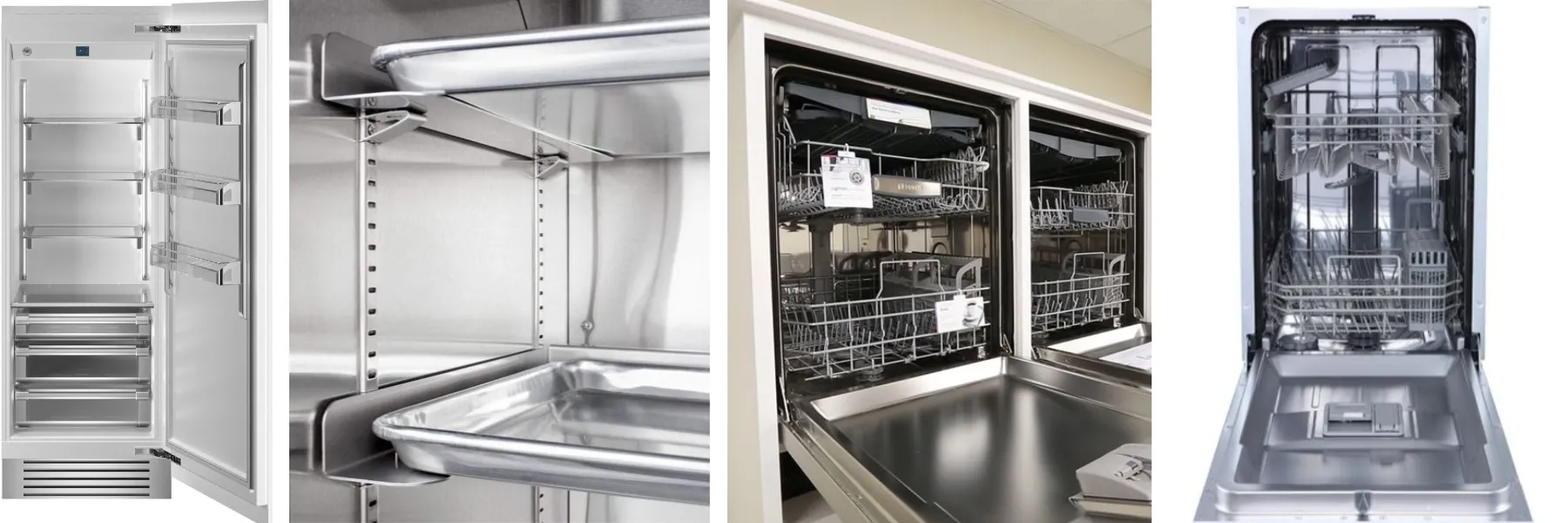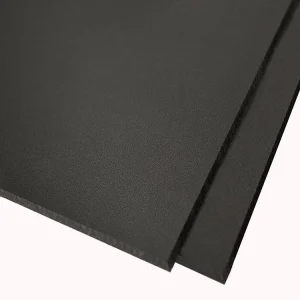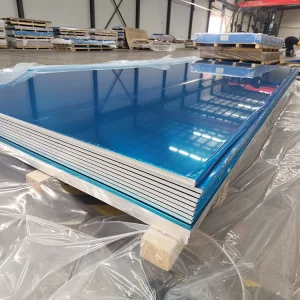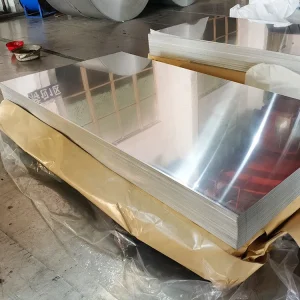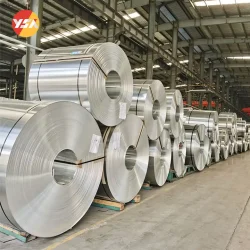Product Introduction
Anodized aluminum often used in interiors of dishwasher and refrigerator. The anodized layer provides a non-stick and scratch-resistant surface, which makes cleaning easier.
The anodized aluminum typically used for refrigerator and dishwasher interiors is 1xxx series of aluminum material. Through the process of anodization, the oil and impurities are cleaned off in an oxidation tank. 1xxx series anodized aluminum not only cost-effective but also easy to cut and has excellent corrosion resistance.
Specifications
| Alloy | 1000, 3000, 5000, 6000, 8000 Series |
| Temper | O – H112 , T3 – T8 , T351 – T851 |
| Width | up to 2600 mm |
| Thickness | 0.01 mm-350 mm |
| Size | Size can be customized |
| Delivery Time | Ready stock 7-10 days |
| MOQ | 1 ton |
| Loading Port | Qingdao Port, Tianjin Port, Shanghai port. |
| Price Terms | FOB, CIF, CFR, CNF, etc. |
| Quality Control | Mill Test Certification is supplied with shipment, Third Party Inspection is acceptable. |
Applications
In addition to corrosion resistance, durability, and aesthetic appeal, anodized aluminum used for refrigerator and dishwasher interiors should also prioritize hygienic properties and ease of cleaning.
Anodized aluminum surfaces should be easy to clean and maintain. The anodized layer should provide a smooth and non-porous surface that resists the adhesion of dirt, grime, and stains, making it easier to wipe or rinse off any residue.
Also, anodized aluminum should have hygienic properties, ensuring that it does not harbor bacteria or contaminants. The surface should be non-reactive with food or cleaning agents, promoting food safety and maintaining a clean environment.
Product Advantages
As a professional manufacturer with decades of experience in aluminum materials, our anodized aluminum exhibits outstanding performance:
- Hygienic:Our anodized aluminum undergoes a thorough cleaning process in our anodizing tank, effectively removing surface oils, dirt, and all impurities. Yongsheng anodized aluminum offers a dependable and secure solution for refrigerator and dishwasher interiors.
- Corrosion Resistance: Yongsheng anodized aluminum features an excellent resistance to corrosion. The oxide layer is highly resistant to fading or degradation, allowing it to maintain surface integrity and durability even in harsh environments, addressing the shortcomings of regular aluminum in acidic or alkaline conditions.
- Insulation: Our anodized aluminum exhibits good insulation properties, making it suitable for electronic and electrical applications as an insulating material.
- Uniformity: The oxide layer of Yongsheng’s anodized aluminum demonstrates high uniformity, ensuring a consistent performance and appearance throughout the entire surface of the aluminum material.
- Controllable Film Thickness: The thickness of the oxide film in anodized aluminum can be precisely controlled by adjusting the processing time and conditions, meeting the requirements of various applications. Yongsheng Aluminum is capable of producing oxide layers with different thicknesses, ranging from a few micrometers to tens of micrometers.
- Adhesion: Yongsheng guarantees excellent adhesion between the oxide layer and the substrate, providing long-lasting protection.
- Thermal Stability: Yongsheng’s anodized aluminum can maintain its performance and appearance stability within a certain temperature range, exhibiting high temperature resistance.
Alloys
Commonly used anodized aluminum materials for architectural cladding is the 1xxx series aluminum. Specific parameters for the different alloys of the 1xxx aluminum by Yongsheng:
| Alloy | State | Thickness(mm) | Tensile Strength(Mpa) | The Yield Strength(Mpa) | elongation(%) | hardness(HV) |
| 1050 (1060) |
0 | >0.2-0.5 | 60-100 | ≥15 | ≥20 | 20-30 |
| >0.5-1.0 | ≥30 | |||||
| >1.0-4.0 | ≥35 | |||||
| H22 | >0.2-0.5 | 80-120 | ≥60 | ≥12 | 30-40 | |
| >0.5-1.0 | ≥15 | |||||
| >1.0-4.0 | ≥18 | |||||
| H24 | >0.2-0.5 | 95-135 | ≥70 | ≥6 | 35-45 | |
| >0.5-1.0 | ≥8 | |||||
| >1.0-4.0 | ≥10 | |||||
| H26 | >0.2-0.5 | 110-155 | ≥75 | ≥2 | 43-55 | |
| >0.5-1.0 | ≥4 | |||||
| >1.0-4.0 | ≥6 | |||||
| H18 | >0.2-0.5 | ≥125 | ≥85 | ≥2 | 50-65 | |
| >0.5-1.0 | ≥3 | |||||
| >1.0-4.0 | ≥4 | |||||
| Alloy | State | Thickness(mm) | Tensile Strength(Mpa) | The Yield Strength(Mpa) | elongation(%) | hardness(HV) |
| 1100 | 0 | >0.2-0.5 | 75-105 | ≥25 | ≥18 | 25-30 |
| >0.5-1.0 | ≥30 | |||||
| >1.0-4.0 | ≥35 | |||||
| H22 | >0.2-0.5 | 95-130 | ≥75 | ≥12 | 30-40 | |
| >0.5-1.0 | ≥15 | |||||
| >1.0-4.0 | ≥18 | |||||
| H24 | >0.2-0.5 | 110-145 | ≥95 | ≥6 | 38-40 | |
| >0.5-1.0 | ≥8 | |||||
| >1.0-4.0 | ≥10 | |||||
| H26 | >0.2-0.5 | 130-165 | ≥115 | ≥2 | 45-60 | |
| >0.5-1.0 | ≥4 | |||||
| >1.0-4.0 | ≥6 | |||||
| H18 | >0.2-0.5 | ≥150 | ≥130 | ≥2 | 55-70 | |
| >0.5-1.0 | ≥3 | |||||
| >1.0-4.0 | ≥4 |


